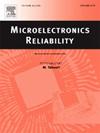利用物理信息的机器学习进行焊点可靠性预测
IF 1.9
4区 工程技术
Q3 ENGINEERING, ELECTRICAL & ELECTRONIC
引用次数: 0
摘要
在电力电子产品中,焊点的可靠性起着越来越重要的作用。由于温度波动引起的热疲劳会导致灾难性的失效。然而,对不同热循环下的疲劳进行预测的能力是缺乏的。基于实验或模拟的方法通常过于昂贵,无法在大范围的热负荷条件下进行。本文提出了一种长短期记忆(PI-LSTM)物理方法,用于预测焊点的塑性应变和相关的疲劳寿命。LSTM模型是在有限元模拟数据的基础上进行训练的,并在损失函数中加入了流动规则。PI-LSTM可以准确预测塑性应变和应力分量,从而实现高效的可靠性预测。使用不同的可靠性模型,发现估计的失效周期与传统有限元模拟的结果非常吻合,证明了PI-LSTM的可靠性评估能力。本文章由计算机程序翻译,如有差异,请以英文原文为准。
Solder joint reliability predictions using physics-informed machine learning
The reliability of solder joints plays an increasingly important role in power electronics. The thermal fatigue experienced due to the temperature fluctuations cause catastrophic failures. However, the ability to predict the fatigue for different thermal cycles is lacking. Experimental or simulation based approaches are typically too expensive to be conducted for a wide range of thermal loading conditions. A physics informed Long Short-Term Memory (PI-LSTM) is proposed here for predicting the plastic strain and related fatigue lifetime in solder joints. The LSTM model is trained on data generated by FEM simulations, enhanced by incorporating the flow rule into the loss function. The PI-LSTM accurately predicts the plastic strain and the stress components, enabling efficient reliability predictions. Using different reliability models, the estimated cycles to failure are found to be in close agreement with those from conventional FEM simulations, demonstrating the PI-LSTM’s capability for reliability assessments.
求助全文
通过发布文献求助,成功后即可免费获取论文全文。
去求助
来源期刊

Microelectronics Reliability
工程技术-工程:电子与电气
CiteScore
3.30
自引率
12.50%
发文量
342
审稿时长
68 days
期刊介绍:
Microelectronics Reliability, is dedicated to disseminating the latest research results and related information on the reliability of microelectronic devices, circuits and systems, from materials, process and manufacturing, to design, testing and operation. The coverage of the journal includes the following topics: measurement, understanding and analysis; evaluation and prediction; modelling and simulation; methodologies and mitigation. Papers which combine reliability with other important areas of microelectronics engineering, such as design, fabrication, integration, testing, and field operation will also be welcome, and practical papers reporting case studies in the field and specific application domains are particularly encouraged.
Most accepted papers will be published as Research Papers, describing significant advances and completed work. Papers reviewing important developing topics of general interest may be accepted for publication as Review Papers. Urgent communications of a more preliminary nature and short reports on completed practical work of current interest may be considered for publication as Research Notes. All contributions are subject to peer review by leading experts in the field.
 求助内容:
求助内容: 应助结果提醒方式:
应助结果提醒方式:


